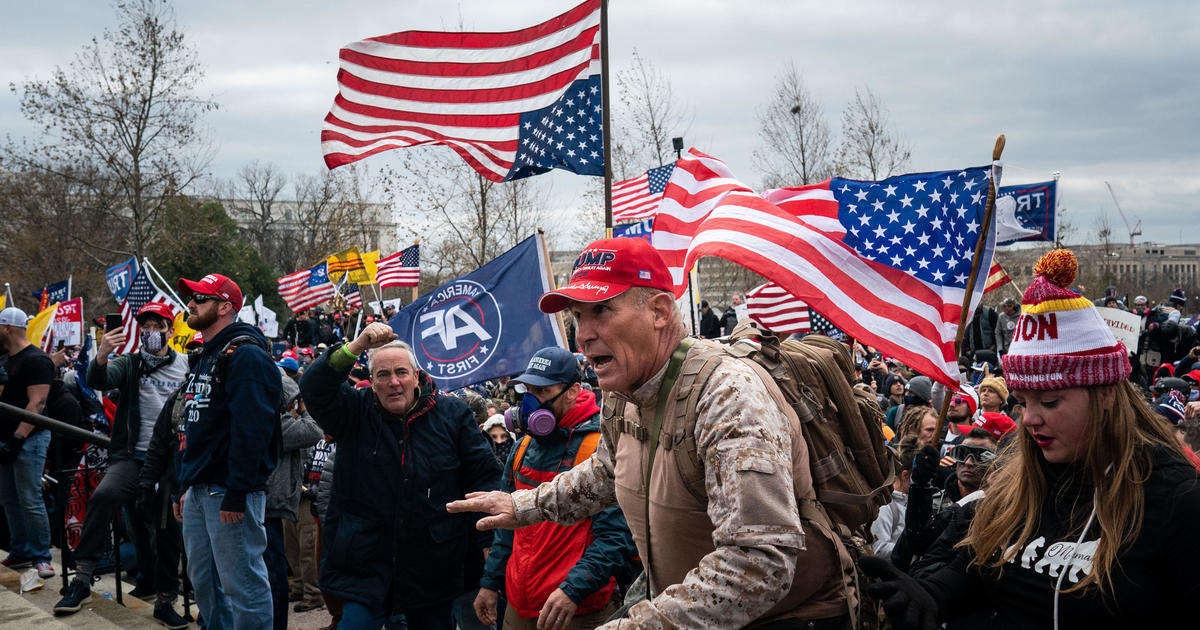The Supreme Court made a significant ruling on Friday in a case involving a former Pennsylvania police officer who was charged with obstructing an official proceeding after entering the U.S. Capitol building on January 6, 2021. The court’s decision narrowed the Justice Department’s use of a federal obstruction statute that had been applied to many individuals who breached the Capitol during the certification of state electoral votes by Congress.
In a 6-3 ruling, the court determined that in order to prove a violation of the obstruction law, the government must demonstrate that the defendant impaired the availability or integrity of records, documents, or other objects used in an official proceeding. Justice Ketanji Brown Jackson joined five conservative justices in the majority, while Justice Amy Coney Barrett sided with the two other liberal justices.
This ruling has implications for the ongoing prosecutions of nearly 250 defendants who have been charged with obstruction for their involvement in the January 6 assault. It could also impact cases that have already been resolved, as individuals who were convicted of violating the obstruction statute or pleaded guilty may seek resentencing, withdraw their pleas, or request new trials. According to the Justice Department, there are 52 cases where a defendant was convicted and sentenced based solely on obstruction charges, with 27 individuals currently incarcerated.
The decision could also have ramifications for the federal prosecution of former President Donald Trump, who is facing charges related to an alleged scheme to overturn the results of the 2020 presidential election. The obstruction statute and conspiracy to obstruct an official proceeding are among the four counts Trump is facing in a case brought by special counsel Jack Smith. Trump has pleaded not guilty to all charges.
As a result of the Supreme Court’s ruling, the former president could potentially seek to have the two obstruction-related counts dismissed by a federal district court. Additionally, Trump is also pursuing a separate argument for the dismissal of the entire indictment based on claims of presidential immunity, though a decision on that matter is still pending.
The case at the center of the Supreme Court’s ruling was Fischer v. U.S., involving Joseph Fischer, who was charged with seven counts, including assaulting a police officer, disorderly conduct, and corruptly obstructing an official proceeding. Fischer moved to dismiss the obstruction count, arguing that the indictment did not allege that he took any action related to documents, records, or objects to obstruct the congressional proceedings.
U.S. District Judge Carl Nichols, the only judge out of 15 presiding over January 6 cases in Washington, adopted a narrow interpretation of the law and ruled in Fischer’s favor. However, the federal appeals court in Washington disagreed with Nichols’ decision in a divided ruling last year. Fischer then appealed to the Supreme Court, marking the first time the justices addressed the aftermath of the January 6 attack.
The special counsel, Jack Smith, asserted to the Supreme Court that regardless of the ruling in Fischer’s case, the obstruction charges against Trump remain valid. Smith alleges that Trump orchestrated the creation of fake electors in seven battleground states and encouraged state officials to submit false certificates to Congress, actions that he argues constitute obstruction.
The Supreme Court’s decision in Fischer v. U.S. has broad implications for the handling of obstruction cases related to the January 6 Capitol assault and could impact the prosecution of individuals involved in the event. It also raises questions about the potential dismissal of charges against former President Trump and underscores the ongoing legal battles surrounding the events of January 6.
In conclusion, the Supreme Court’s ruling in this case has far-reaching consequences for the interpretation and application of federal obstruction statutes, particularly in cases involving high-profile events like the January 6 Capitol riot. The decision sets a precedent for the level of proof required to establish a violation of the obstruction law and could lead to significant legal challenges and revisions in ongoing and future cases related to obstruction of official proceedings.









